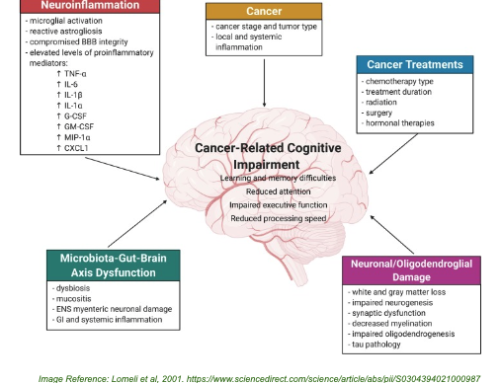Advances in technology have slowly and steadily been transforming the delivery of health care in Australia but the social distancing restrictions imposed by COVID-19 have catapulted telehealth into the mainstream seemingly overnight.
In fact, in a recent PwC report Executive Director of Strategy Quality and Improvement at the Royal Melbourne Hospital, Professor George Braitberg, said “at the beginning of the pandemic only 20 per cent of our outpatient visits were being done by telehealth, either by telephone or some form of telehealth platform. During COVID-19, that number rose to 85 per cent.”
Telehealth offers a range of benefits for both patients and clinicians in a country as diverse and enormous as Australia, including:
- Improving the accessibility and affordability of care for people in rural and regional areas
- Enhancing convenience and comfort for people in the middle of complex treatments
- Greater continuity and quality of care
- More opportunities for people to contact their healthcare providers
- Shorter waiting times, which may support faster diagnosis, referral and treatment
- Reducing inequities and inefficiencies in the delivery of health care service
With a computer, webcam and internet access, people can access a wide range of health care services within the comfort of their own home and at a time which suits them…what’s not to love?
Unsurprisingly, therefore, Australians have embraced the expansion of telehealth with open arms. In November 2020 an ABS survey asked Australians about their use of telehealth in the previous four weeks and they were also asked in May and June 2020.
In November, almost one in six (18 per cent) Australians said they used a telehealth service in the previous four weeks and these figures were similar in June (20 per cent) and May (17 per cent).
Of the people who used a telehealth service in the previous four weeks:
- women (23 per cent) were more likely to use the service than men (12 per cent)
- people in Victoria (32 per cent) were more likely to use the service than those in New South Wales (14 per cent) and the rest of Australia (12 per cent)
- people with a long-term health condition (27 per cent) were more likely to use the service than people without a long-term health condition (11 per cent)
- people with disability as reported in this survey (30 per cent) were more likely to use the service than people with no disability (14 per cent).
In addition, according to the Minister for Health Greg Hunt:
From 13 March 2020 to 21 April 2021, more than 56 million COVID-19 Medicare-eligible telehealth services were delivered to 13.6 million patients, with $2.9 billion in benefits paid. While, over the same period more than 83,540 providers used telehealth services.
In Australia a range of health care providers now offer telehealth services to clients, including GPs, specialists, allied health providers, mental health professionals and nurse practitioners, and are supported by Medicare to do so.
Why telehealth is great for cancer patients
While telehealth offers greater convenience and accessibility to all Australians, it is especially useful for people with chronic health conditions requiring ongoing and complex care, such as cancer.
Prior to COVID-19 MBS telehealth items were available to cancer patients living in rural and regional areas to enable them to connect with clinicians via video. However, this arrangement was not available to patients living in metropolitan areas and didn’t include allied health services.
The COVID-19 Temporary MBS Telehealth Services have enabled cancer services and health professionals to continue to offer high quality clinical services to everyone affected by cancer safely and effectively.
In addition, they have enhanced the care of patients remotely from clinics by enabling review for treatment decision-making and post therapy monitoring where otherwise this would have been limited.
Many private health insurers are also offering telehealth services as a result of COVID-19 and depending on their insurer and level of cover, members may be able to access allied health care such as psychology, physiotherapy, dietetics and exercise physiology via virtual care.
The increased availability of telehealth has been welcomed by patients, with a recent survey by Consumers Health Forum finding that more than 80 per cent of patients offered a telehealth appointment took up the offer, and a similar proportion viewed the service as excellent or of good quality.
Similarly, a patient survey in April 2020 by Loddon Mallee Integrated Cancer Service found 76 per cent of patients would like video consults to be an ongoing option for appropriate consults.
The ABS survey mentioned previously also asked people who used telehealth services in the last four weeks if they felt listened to, and if the health professional spent enough time with them, and showed high satisfaction levels, with
- 94 per cent of people reporting the health professional always or often listened carefully to them and
- 91 percent reporting the health professional always or often spent enough time with them.
Telehealth services save cancer patients and their care-givers significant time and money – savings on transport costs and parking fees, time off work or child care, travel time or wait time in a busy clinic.
According to COSA telehealth also delivers savings to health services with fewer cancellations, by diminishing unnecessary clinic visits, potentially reducing clinic footprints and providing more efficient options for family consultations and follow up (with nursing and allied health consultations included).
While face-to-face appointments will always be an integral component in a cancer patient’s journey, telehealth offers an excellent alternative for regular consultations, treatment follow ups, scan and test results and advice on symptom management and care.
Patient-centred care
Telehealth has emerged as an essential tool for delivering timely and cost-effective healthcare to cancer patients during the COVID-19 pandemic and offers significant benefits.
While telehealth may not be suitable for all cancer patients or all types of health care services and consultations, with careful screening it offers an effective tool for improving the patient experience and for creating capacity within the Australian healthcare system.
Valion Health’s Cancer Programs, offer tailored end-to-end support to people to live well with cancer through the provision of expertise advice in recovery areas such as exercise, nutrition and mental health as well as resources to enhance a patient’s understanding of their cancer treatment and how best to manage symptoms, all via telehealth.
Contact us to learn more.




